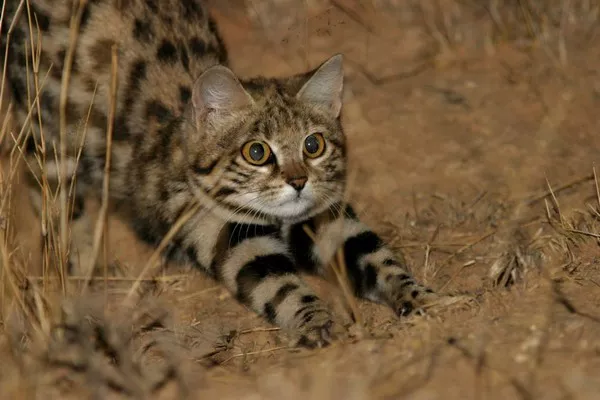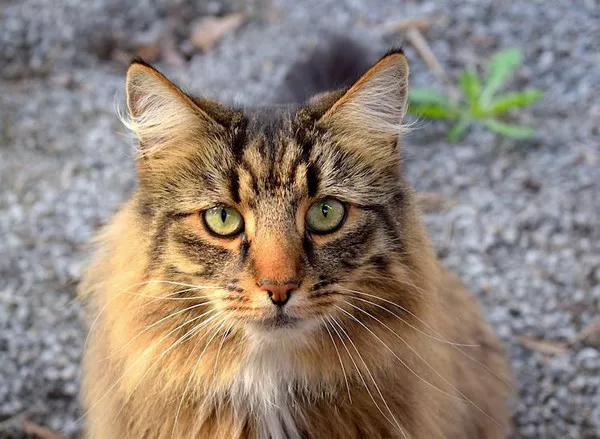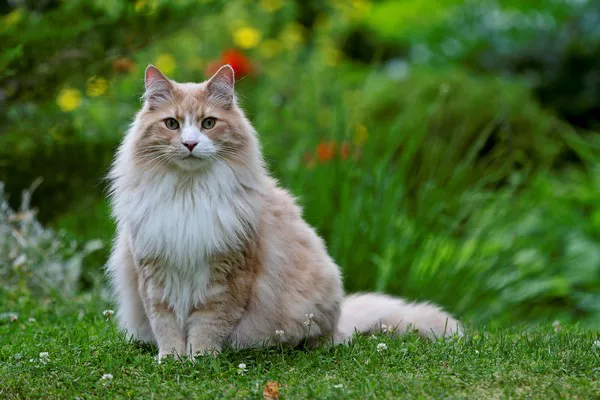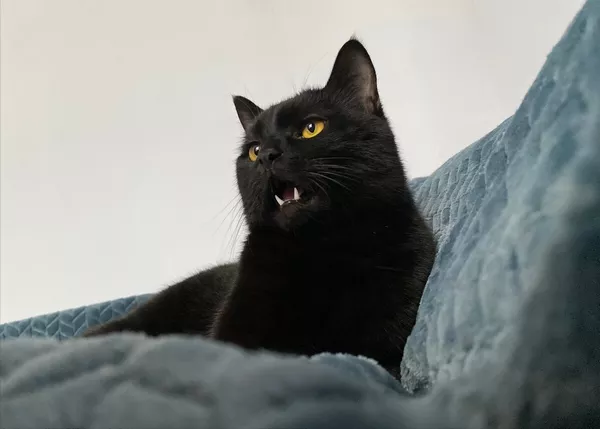Utah’s Hogle Zoo welcomes its latest resident, Gaia, a fierce yet adorable black-footed cat hailing from Africa. Gaia, who made her way from Glen Rose, Texas, to the zoo in October 2023, is captivating visitors with her small stature but formidable presence.
Born in May 2023, Gaia is a little over 8 months old, weighing approximately 2.64 pounds, according to Hogle Zoo. Despite her innocent appearance, zoo officials caution against underestimating this pint-sized feline’s prowess.
After completing the standard quarantine procedures for new arrivals, including a thorough health check, Gaia made her public debut in late December, as shared in a Facebook post by the zoo on Dec. 28.
Bob Cisneros, Associate Director of Animal Care at Utah’s Hogle Zoo, described Gaia as a “pretty feisty cat” and a “mighty warrior.” He mentioned her settling routine at night when she retreats to her cave once the public has left.
Gaia’s diet is meticulously curated, comprising ground bone, skeletal muscle, organs, and the occasional mouse that has been humanely euthanized through the zoo’s distributors.
Born at the Fossil Rim Wildlife Center in Glen Rose, Texas, Gaia is one of four black-footed kittens in her litter. These cats, the smallest wild cat species in Africa, inhabit arid regions of Namibia, Central and Southern Botswana, and South Africa. Their name is derived from their black or dark brown soles.
Black-footed cats are renowned for their remarkable hunting skills, boasting a 60% success rate compared to big cats, which typically have around 20%. Gaia’s species consumes 8 to 14 meals per night in their natural habitat and can devour up to 3,000 rodents annually.
Despite their small size, black-footed cats can jump up to five feet in the air and cover 6½ feet in distance, showcasing their agility.
Gaia’s arrival at Hogle Zoo aligns with the Black-footed Consortium’s recommendation for breeding purposes. Once she reaches sexual maturity, Gaia is expected to meet her potential mate, Ryder, a 3-year-old male residing in the adjacent enclosure.
Cisneros highlighted Gaia’s ideal genetic match with Ryder, emphasizing the potential significance of their breeding for the consortium, which currently comprises only 29 black-footed cats.
Black-footed cats are classified as vulnerable by the International Union for Conservation of Nature and Natural Resources. Given their nocturnal and elusive nature, determining their population in the wild remains challenging. Nonetheless, a 2016 assessment estimated around 9,700 individuals in Botswana, Namibia, and South Africa, underscoring the importance of conservation efforts.

























